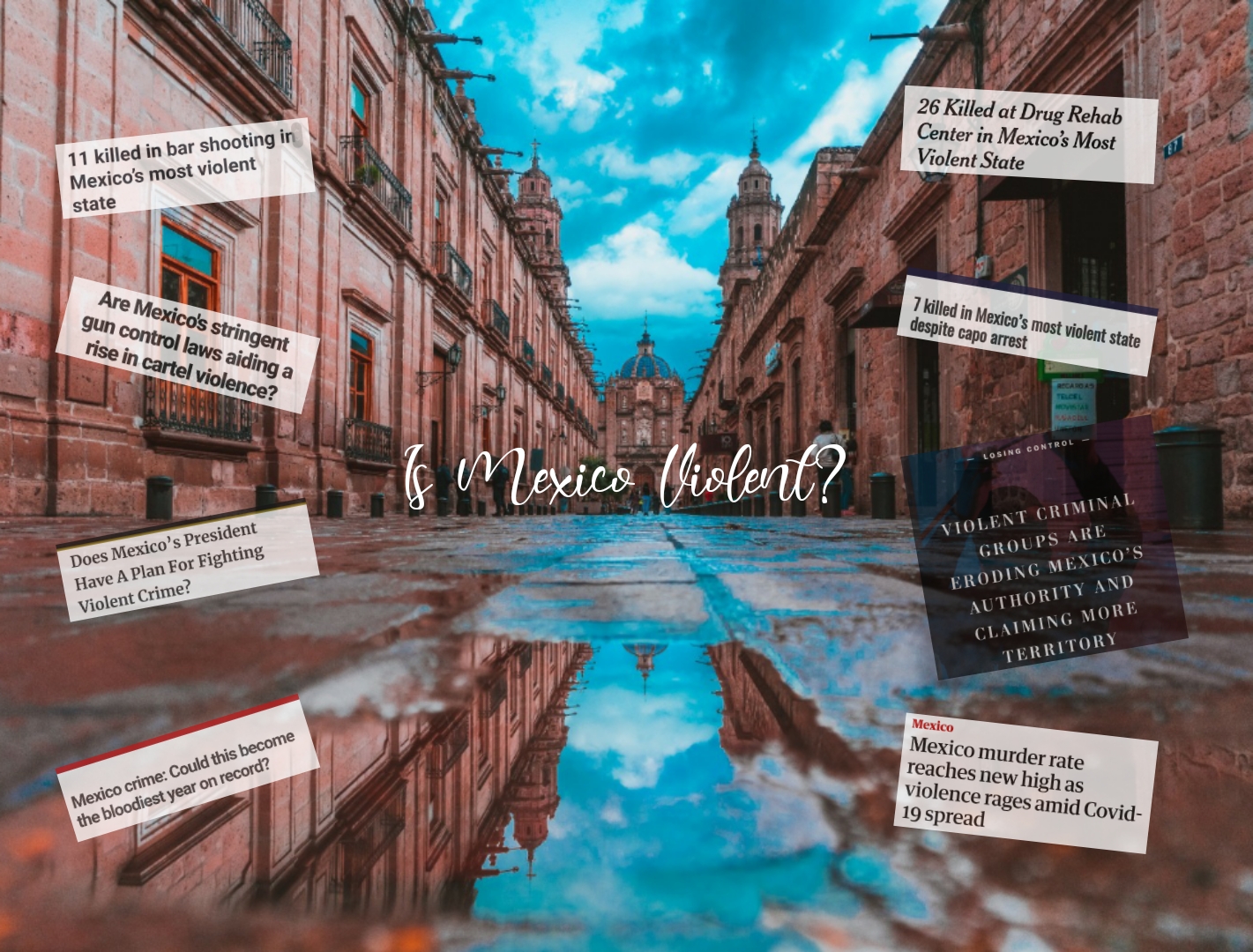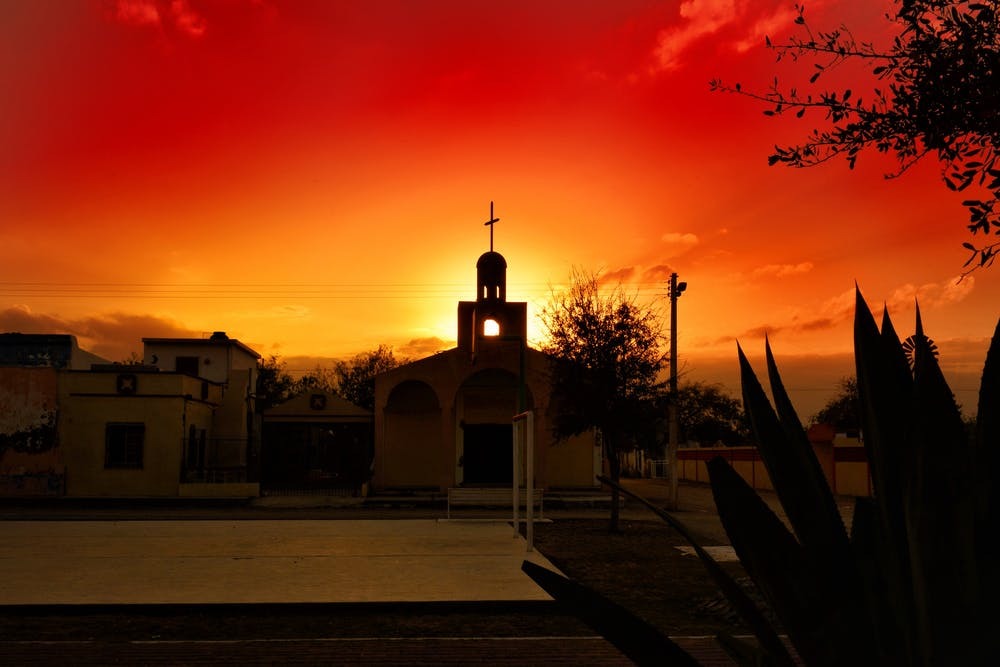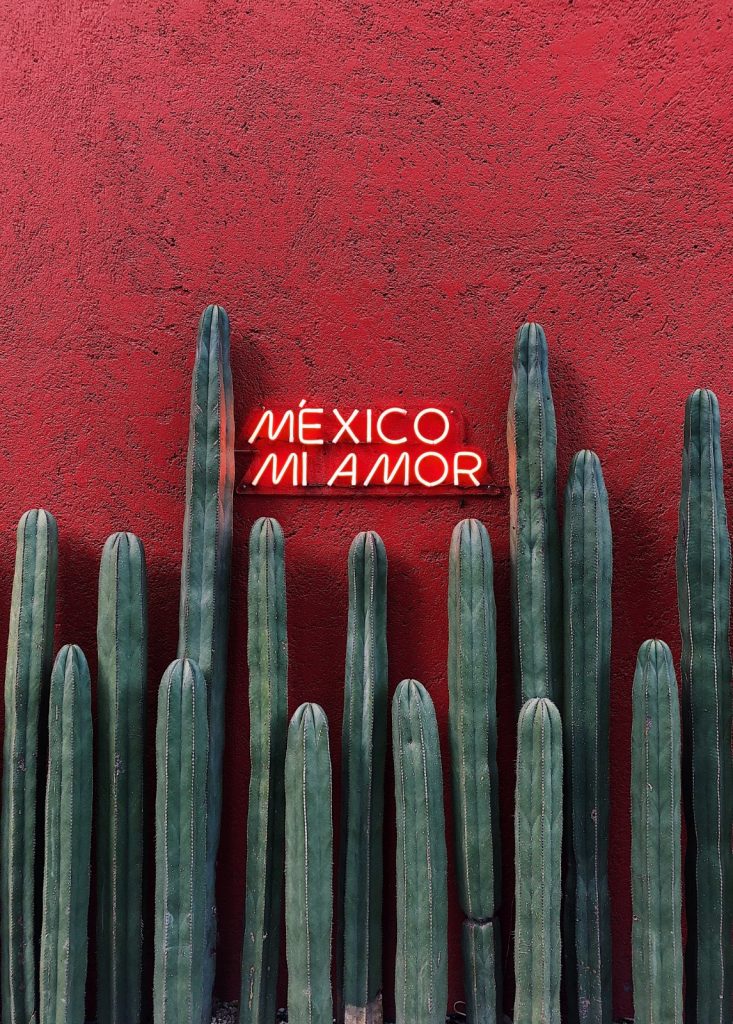Colors of Mexico 4: Red

Is Mexico violent? This question is certainly the one I have heard the most these past few months. Every time I talk about my experience in Mexico, the matter of violence is systematically brought up, explicitly or implicitly. Sometimes, it even ends up being the only question asked.
In March, when I still lived in California and I was about to fly to Mexico City, mentioning Mexico provoked a certain incomprehension and, sometimes, a certain disdain. I remember when I announced my departure for Mexico to University of Santa Barbara’s international students’ supervisor, she clearly looked down at me and asked what the hell I was going to do down there because there is nothing. Since I returned home in France, whenever I am asked about my experience, it often happens that issues of security are the only brought up topic. The rest of my experience is out of interest.
In Mexico, I sometimes googled “Mexico” in Google France to see what popped up and I often was shocked by what I found out. Although I checked out the popular French newspapers, the news were always fake or exaggerated. Let me share two examples with you`. One day, members of a cartel tried to assassinate the chief officer of Mexico City’s security, a few kilometers away from my apartment. I wasn’t even aware of this event and nobody seemed to really care, because it was a very targeted act of violence. However, in Le Monde (the French The Guardian), it was claimed that gangs had declared war on the State of Mexico. I then lived in Mexico in the middle of a civil war, according to Le Monde. In the same way, an earthquake occurred at the end of June. The whole city gathered in the street when the alarm rang. Obviously, many people had forgotten their mask and gel but I can assure you that when your apartment trembles, grabbing your mask isn’t your first priority (I even forgot to put shorts on). In French newspapers, it was said that Mexicans hadn’t respected sanitary measures, describing a country that wouldn’t care about the pandemic, whereas Mexicans have always been wearing masks more than French people.
Violence and insecurity are the main stereotypes that Europeans have about Mexico, mainly spread out by the media. Some of my French friends who have never lived in Mexico even assure me that it is impossible to live more than a year in Mexico without ending up being kidnapped.

Therefore, is Mexico really violent and dangerous?
In order to attempt to answer this interrogation, I am going to tell you a little story. My boyfriend and his family have been living in the northern suburb of Mexico for many years, in a town called Tultitlan. Before travelling to Mexico the first time, I did some research on the French embassy’s website and I found out that they classified this town as one that “we must avoid unless an extreme necessity”. I ignored this recommendation and I visited my boyfriend’s family a few times. I walked down the streets without anything happening to me but, still, this is somewhat normal and important to remind. More astonishingly, one day I brought up that many Europeans picture Mexico dangerous during a reunion with my boyfriend’s family. They all had genuinely surprised reactions and asked me many questions to figure out the reasons behind this stereotype. They live in a “very violent” area but they don’t know it. Beyond this example, my boyfriend has never suffered any trouble in 22 years of life in Tultitlan.
In reality, I have never felt unsafe in Mexico and I have even felt safer than in Paris, which sounds rather surprising. I have spent more than five months there, I went out at night to parties or ton walks, I took public transportation, I have been to neighbors considered “dangerous”… I have never felt unsafe, I have never felt any threatening look upon me or I never walked faster because I had the impression that somebody was following me.
In France, people argue that I have never had any trouble because I hang around with a local. It certainly helps but I must remind them of two things. First, my best friend and I travelled around during an entire week and it is unmissable that we are foreigners (we are blond with blue eyes). We visited many places and we didn’t only hang out in planes and luxury hotels. We walked through non-touristic places, we took night buses and taxis, etc.… Again, we did not feel unsafe once. Secondly, I would say that connecting with locals and trying to fit in the local society is a sign of respect when we live somewhere else.
Finally, I am going to clarify a very practical consideration. I know, Mexico is mainly considered violent because of drug trafficking. It is what explains high homicides statistics in certain regions, ranking Mexico in the most dangerous countries in the world. However, cartels turn out to be a very low risk for random individuals. Indeed, cartels are organizations whose military and economic power is equivalent to some states, with transnational activities and revenues reaching millions or billions of dollars. Therefore, they don’t really care about those 50 dollars in our pocket.

One very basic and important rule we must never forget: the places considered “extremely dangerous” where we refuse to go are inhabited by human beings. I know, it can sound cheesy but it is the truth. When we affirm “you must not go there”, we marginalize a part of humanity and we affirm that these people don’t deserve our attention. When I arrived in Mexico at the very beginning of the pandemic, many people in France advised me to come home. They were arguing that Mexico’s health system was not developed enough, that Mexico was dangerous and that a pandemic in such a country was going to be catastrophic. At that time, I didn’t know if all of this was going to turn out to be true, but I knew that US health system was extremely expensive and that French one was completely overwhelmed by the pandemic, transferring patients to other countries. Mexico’s health system could hardly be worse. I remember that I looked at my boyfriend and I told myself “as for him, he doesn’t have any other option, he lives here and so do other 127 million people, they are going to fight and tackle this pandemic with the resources they have” and I realized something extremely important: if they have all been living here for a very long time, I should be able to do it as well. I decided that I was staying in Mexico. I would have found it disrespectful to tell my boyfriend: “I am sorry but your country is not developed enough for me to stay, I go home and I leave you behind with your country”. It became a rule I always try to stick to: never forget that in every matter, we talk about our equals.
These stereotypes also generate important consequences because they push a lot of people into refusing to go to Mexico. This has economic consequences because these people are tourists who end up travelling elsewhere. It also has consequences on Mexicans’ collective consciousness because, as we all know, we feel ashamed and angry when one has stereotypes upon us. The same phenomenon happens for a country. When movies and TV shows only picture Mexicans as robbers or drug dealers, it reflects Mexicans a bad image of themselves, creating a feeling of shame and anger. Again: never forget that we talk about individuals.
Therefore, I think that, based on my own experience, you have all understood my answer to the question Is Mexico violent?: no more than any other country.
photos from Unsplash

Have a story to share? Contact us.
featherpen-blog@hotmail.com
Also, don't forget to follow us on Instagram!
@featherpenblog